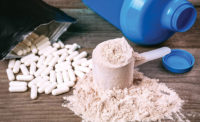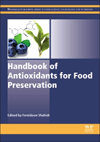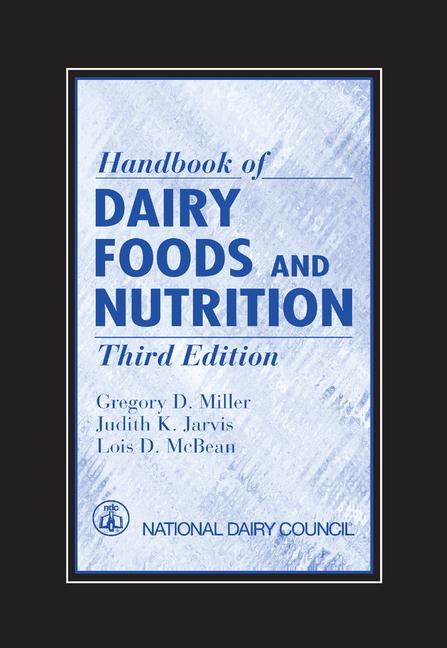Protein supplements boost benefits of exercise
Dairy protein supplements are ideal for flexitarians.

At 13, my grandson is starting to lift weights to build strength and be more competitive in sports. At 40-plus, my son continues to lift weights to keep his weight in check. And at 60-plus, I lift lighter weights and do yoga to keep my muscles strong and flexible. And each of us has a favorite protein supplement.
Across almost all age groups, people are exercising and adding protein to their diet to maximize the benefits of exercise.
According to Grand View Research, the global protein supplements market was estimated at $17.55 billion in 2019 (https://tinyurl.com/skzmfda). Protein powders account for roughly 64% of sales by revenue, with ready-to-drink (RTD) protein supplements and protein bars making up the bulk of other sales. While the United States dominates the sports nutrition market, Southeast Asian countries offer growth potential.
Protein quality
Grand View Research notes that animal-based protein held roughly 67.9% of the global protein supplements market in 2019. Despite interest in plant proteins on the part of some consumers, research shows that animal proteins are still the optimal resources for building and maintaining muscle.
A study (https://tinyurl.com/y9salwsb) compared skeletal muscle growth with plant-based versus animal-based protein. The study results suggest that ingestion of the plant-based proteins in soy and wheat translates into a lower muscle protein synthesis response in comparison to several animal-based proteins. This might be due to their lower leucine content. Most plant-based protein sources have a leucine content of 6-8%, whereas whey protein has the highest leucine content at 13.6%.
Consumers who shift their diet toward greater intake of plant proteins often choose more grain-based plant proteins, resulting in lower overall dietary protein quality. Grain-based proteins are also low in lysine, but dairy-based protein supplements boost protein quality by delivering a complementary dose of lysine.
Remember that all proteins from milk deliver the amino acid nutrients that match human requirements better than plant proteins do. For those who want to eat more plant foods, a flexitarian approach might be optimal, with dairy-based sports nutrition supplements boosting the protein quality of the overall diet.
Optimal intake
A 2018 meta-analysis of protein supplements revealed that dietary protein supplements do increase strength and improve free fatty mass (https://tinyurl.com/vj3lflg).
Consumers and athletes often ask how much they should increase their daily protein intake with supplements. The answer depends on age. The above study found that protein supplements were more effective for younger resistance-trained individuals than for older adults, and that protein supplementation beyond 1.6 grams of total protein per kilogram of body weight per day provided no additional benefits in healthy adults.
However, data show that in individuals over 70, 6% of men and 12% of women consume less protein that the Estimated Average Requirement (0.66 gram of protein/kilogram/day). It has been estimated that 5-13% of persons aged 60-plus and almost 50% of persons aged 80-plus are sarcopenic — that is, exhibit a loss of muscle tissue associated with the aging process (https://tinyurl.com/yx5562fs).
For seniors, RTD protein supplements offer an easy way to remedy this situation.
As leucine has been shown to be a key driver of muscle protein synthesis, does adding more leucine further enhance muscle protein synthesis? A study published this February (https://tinyurl.com/t4fxtxh) found that high-dose leucine supplementation did not further enhance gains in muscle strength and mass in young resistance-trained males who are already consuming adequate amounts of dietary protein (1.8 + 0.4 grams of protein/kilogram/day).
Protein supplements are also used for weight management. A study published this past November (https://tinyurl.com/t3pc67c) found that they help individuals to maintain a more favorable protein/carbohydrate ratio in the diet. Great news, as this helps individuals with prediabetes keep off the weight after a weight-loss regimen.
Looking for a reprint of this article?
From high-res PDFs to custom plaques, order your copy today!







